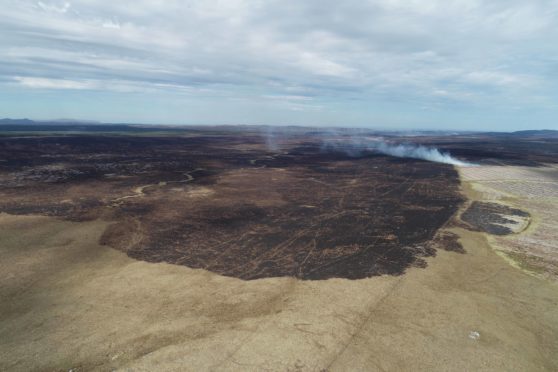Researchers are embarking on a year-long study to investigate the scientific damage of a wildfire that took days to extinguish.
The fire broke out on peatland near Strathy in Sutherland in May, with about 23 square miles of land damaged.
Now the Fire Blanket project, let by the University of the Highlands and Islands, will focus on the destruction of vegetation and impaired water quality.
Strathy is part of The Flow Country – the largest area of a rare blanket bog found in Europe – and is currently under consideration for World Heritage Site status.
The study will explore the known qualities of peatlands that soak up carbon dioxide from the atmosphere in the hope of promoting bio-diversity and high-quality water, and if the fire damaged the peatland’s ability to do this.
Dr Roxane Andersen, a researcher at the Environmental Research Institute, is leading the project.
She said: “Understanding how land-use interacts with climate extremes in peatlands is essential to inform which management practices best maintain and enhance peatland carbon storage.
“However, this is notoriously challenging to achieve because climate extremes are rare and last for a very short time.
“In addition, its effect can only be truly assessed where high-quality, ground-based observations pre-date an extreme event and where data from both impacted and similar control areas can be compared afterwards.
“All these conditions have come together in the recent Flow Country fire, providing us with a unique opportunity to fill important gaps in knowledge required to improve management of peatlands to minimise fire risk and maximise resilience. We also hope it will open up avenues for further research.”
The researchers are particularly interested in the way different management practices might help to protect peatlands or make them more vulnerable to fires and the effects of fire.
While data collection will be the main focus of the project, the team will also hold a workshop with land managers and other stakeholders to consider whether changes in management practices could help to reduce fire risks in the future.
The project is being funded by the Natural Environment Research Council. It will include researchers from the Centre for Ecology and Hydrology, the National Oceanographic Centre, the University of Nottingham and the RSPB.

